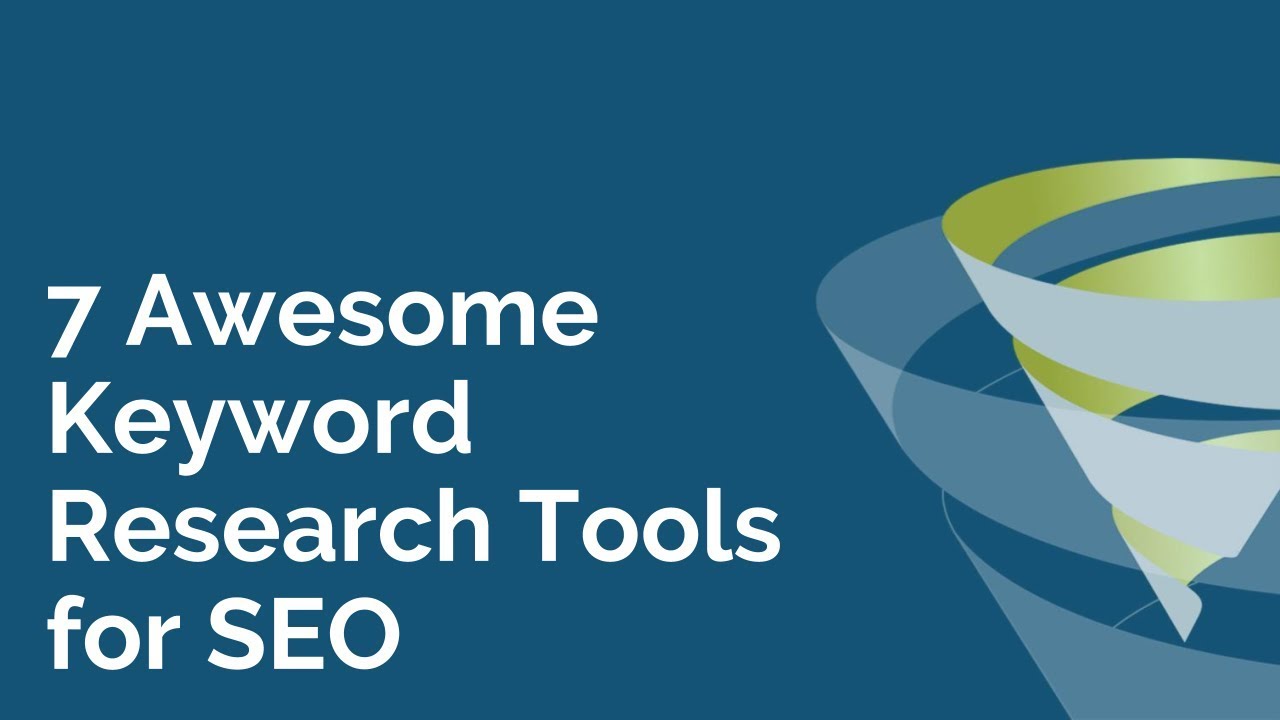Before investing heavily in an SEO project, whether that’s by paying an SEO agency to manage it or investing your own time and effort, the first step should always be a careful SEO keyword research project.
In the first half of this two-part T-Time show, Tillison Consulting MD Mark Tillison talks about what keyword research is and why it’s important, before recommending the best keyword research tools for SEO.

In this SEO T-Time show:
- The importance of keyword research in SEO
- Keyword research tools for SEO
- Google Suggestions
- Google Ads Keyword Planner
- Google Traffic Estimator
- Yoast Google Suggest
- Ubersuggest
- YouTube
- Google Search Console
- Sonar
The importance of keyword research in SEO
When we talk about ‘SEO keywords’, we typically mean a phrase that actually represents a number of derivatives, misspellings and variations. Each keyword discovered in your research will have higher or lower monthly traffic volumes, wildly differing levels of competition and, most importantly, different search intentions behind each keyword.
Some keywords are just going to be impossible for you to rank for, if you’re competing against some big-hitting sites. Some keywords will show ‘how to’ pages in the search results, whereas others will show products or services.
SEO keyword research is an important element in ensuring that you’re creating the right pages for the right keywords at the right time in your customer journey. Conducting thorough keyword research is therefore critical to your success in actually making SEO profitable, rather than just improving rankings and getting more traffic.
Keyword research tools for SEO
Google Suggestions
(01:42) Finding keyword research tools for SEO is sometimes simpler than it seems – you can even use Google to conduct keyword research which is both free and effective.
For example, let’s say you run an eCommerce store that sells fish tanks. If you go to Google and type ‘fish tank’ into the search bar, Google will automatically suggest up to ten popular search queries – or ‘keywords’ – that it believes you’re most likely to be searching for. Although these are the most popular keywords which start with ‘fish tank’, it’s not all of them.
From here, you can simply extend your query to ‘fish tank a’ and Google will present up to ten more popular keywords. Expand on this technique further by searching ‘fish tank ab’, ‘fish tank ac’ and so on and you’ll soon have a multitude of keywords to consider.
When you find a keyword that you think is relevant to what you are selling, copy it into a spreadsheet or document and repeat until you have a list of keywords that you want to attract traffic to your store for. This is a huge process that could end up with you trawling through the alphabet multiple times, but it will certainly point you in the right direction for long-tail keywords that are specific yet remain popular among your target audience.
Google Ads Keyword Planner / Google Traffic Estimator
(04:38) Assuming you have an account, Google Ads offers a useful keyword research tool in the form of its Keyword Planner. You may think this is only relevant if you’re running a pay-per-click campaign through Google Ads, but it’s also one of the handiest keyword research tools for SEO.
In the Keyword Ideas section of the navigation, you can carry out a very similar process to searching for keywords on Google. Type in a search query – let’s use the example of ‘fish tank’ again – and the Google Ads Keyword Planner will start suggesting different search terms that could prove useful in more than one capacity: they may be keywords that you want to bid on in Google Ads, or they may be keywords that you want to optimise your site for in the more organic context of SEO.
As well as helping to identify very specific high-intent keywords, using Google Ads Keyword Planner will also apply a more semantic element to the keyword research process – it could suggest that you bid on terms like ‘aquarium’ as well as ‘fish tank’. Instead of having to copy and paste every relevant keyword, you can simply check the boxes next to your chosen ones and export them all as a .csv file, along with all the useful data such as their average monthly searches (through the Google Traffic Estimator), level of competition and the bid to get your ad at the top of search engine results pages (SERPs).
YouTube
(06:59) YouTube can serve as another one of those keyword research tools for SEO which involves a very similar but no less relevant process to using the Google search bar. By typing your target term into YouTube‘s search bar, you can see which popular subjects users are searching for videos on.
Some of these search terms are not necessarily queries directly related to making a purchase, so much as they are ‘how to’ queries from users in search of videos containing tutorials, advice or inspiration.
If you have a content strategy, then there may be some terms you pull from using YouTube as a keyword research tool that you can build new content around, rather than using them just to optimise your sales and product pages.
Yoast Google Suggest Expander
(08:14) An SEO keyword research tool that could save you a decent amount of time is the Yoast Google Suggest Expander. This tool extracts data from Google’s application programming interface (API) to expand your chosen search query and presents long-tail keywords in a much more efficient manner than leaving you to copy and paste them from the Google search bar into a spreadsheet.
With each long-tail keyword presented by Yoast, you can delve even deeper into variations that could be beneficial for optimising both your sales pages and your content strategy. This tool, much like Google Ads Keyword Planner, also offers you the option of exporting the suggest output into a .csv file, which you can then view in Google Sheets, Microsoft Excel or your chosen spreadsheet software. You can then use this tool in conjunction with Google Ads to source more specific data on the keywords such as the average search volume.
The only thing you might need to bear in mind with using the Yoast Google Suggest Expander is that it tends to use US or global data, so this is important to remember if you are based in the UK.
Ubersuggest
(11:12) Designed by entrepreneur and digital marketing influencer Neil Patel, Ubersuggest is another one of our favourite keyword research tools for SEO. It extracts data from both Google Ads’ and Google Search’s API.
Once again, type in ‘fish tank’ and Ubersuggest will present you with a multitude of variations of that term and related ones that you might want to consider optimising for. It will also provide you with data relating to search volume, estimated cost per click and competition levels.
If you are in a situation where you only sell one product, or a very limited range of products, then a lot of the data that Ubersuggest presents might not be very relevant to you. On the other hand, if you sell one main product and then a large quantity of products surrounding it, then SEO keyword research tools like Ubersuggest and Yoast Google Suggest Expander are going to prove a lot more useful to you.
Google Search Console
(14:23) We have already covered how you can do free SEO keyword research in Google Search Console, so here’s a quick overview: Search Console shows you which queries are leading users to your website through organic search, as well as the number of clicks, impressions and the average position you are earning for those keywords.
Using Google Search Console as a keyword research tool is a really easy way to find out which keywords you are already ranking for, and to secure some ‘quick wins’ through optimising your site and pages further for those terms.
Sonar
(15:53) Sonar is relatively new among our favourite keyword research tools for SEO, but it is worth noting nonetheless. Where tools like Yoast and Ubersuggest pull data from Google’s API, Sonar pulls from Amazon’s API, both for the UK and US.
This means that, unlike most of the other keyword research tools we’ve discussed, it is not using Google’s data in any capacity. Nonetheless, there is no harm in including keywords you’ve discovered through Sonar in your keyword strategy, even if there isn’t a lot of search volume for them in Google.
If you found this video useful, make sure you’re subscribed to our YouTube channel to catch part two of this T-Time show, where Mark will cover how you can analyse and apply the information and data obtained from proper keyword research, as well as the decisions you need to make about which keywords to target with your SEO project.
In the meantime, do you have any pressing questions about keyword research or your SEO strategy in general? Let us know in the comments, or click below to speak with one of our specialists and take advantage of our free 19-point SEO audit.




